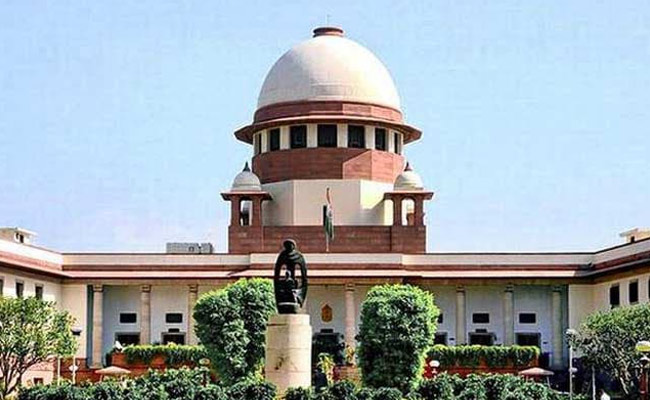)
Read SC Judgment
In a major move, the Supreme Court has recommended Central Govt to introduce a special enactment called 'Bail Act' in order to streamline the criterias to grant bail.
The suggestion came when the Division Bench comprising of Justice Sanjay Kishan Kaul and Justice MM Sundresh was dealing with bail applications.
Taking note of the continuous supply of cases seeking bail after filing of the final report on a wrong interpretation of Section 170 CrPC, the Court made an endeavour to categorize the types of offenses to be used as guidelines for the future.
Shedding light on the 'prevailing situation', the Court remarked jails in India are flooded with undertrial prisoners. It disclosed the shocking statistics of more than 2/3rd of such inmates being under-trial prisoner.
The Court commented on how the colonial minset still prevails and is denting the democratic system.
Of this category of prisoners, majority may not even be required to be arrested despite registration of a cognizable offense, being charged with offenses punishable for seven years or less. They are not only poor and illiterate but also would include women. Thus, there is a culture of offense being inherited by many of them. As observed by this Court, it certainly exhibits the mindset, a vestige of colonial India, on the part of the Investigating Agency, notwithstanding the fact arrest is a draconian measure resulting in curtailment of liberty, and thus to be used sparingly. In a democracy, there can never be an impression that it is a police State as both are conceptually opposite to each other."
It noted that the principle that 'Bail is the Rule and Jail is the Exception' has been well recognised through the repetitive pronouncements under the umbrella of Article 21 of Constitution of India.
The Court went on to cite key cases such as Nikesh Tarachand Shah Vs. Union of India & ANR., 2017 Latest Caselaw 823 SC, Sanjay Chandra Vs. CBI , 2011 Latest Caselaw 860 SC,
The Court was dismayed that despite the dictum of this Court in Arnesh Kumar (supra), no concrete step has been taken to comply with the mandate of Section 41A of the Code.
"This Court has clearly interpreted Section 41(1)(b)(i) and (ii) inter alia holding that notwithstanding the existence of a reason to believe qua a police officer, the satisfaction for the need to arrest shall also be present. Thus, sub-clause (1)(b)(i) of Section 41 has to be read along with sub-clause (ii) and therefore both the elements of ‘reason to believe’ and ‘satisfaction qua an arrest’ are mandated and accordingly are to be recorded by the police officer."
It mentioned the existence of exclusive Acts in the form of Bail Acts prevailing in the United Kingdom and various States of USA that prescribe adequate guidelines both for investigating agencies and the courts.
Noting that uniformity and certainty in the decisions of the court are the foundations of judicial dispensation, the Court said that persons accused with same offense shall never be treated differently either by the same court or by the same or different courts.
"Such an action though by an exercise of discretion despite being a judicial one would be a grave affront to Articles 14 and 15 of the Constitution of India.", the Court said.
Stating that the Code as it exists today is a continuation of the preindependence one with its modifications, the Court called on the Government of India to consider the introduction of an Act specifically meant for granting of bail as done in various other countries.
It examplified the same by shedding light on UK's Bail Act.
"The Bail Act of United Kingdom takes into consideration various factors. It is an attempt to have a comprehensive law dealing with bails by following a simple procedure. The Act takes into consideration clogging of the prisons with the undertrial prisoners, cases involving the issuance of warrants, granting of bail both before and after conviction, exercise of the power by the investigating agency and the court, violation of the bail conditions, execution of bond and sureties on the unassailable principle of presumption and right to get bail. Exceptions have been carved out as mentioned in Schedule I dealing with different contingencies and factors including the nature and continuity of offence. They also include Special Acts as well. We believe there is a pressing need for a similar enactment in our country."
Accrodingly, following directions were given:
CASE TITLE: SATENDER KUMAR ANTIL vs CENTRAL BUREAU OF INVESTIGATION & ANR
CASE DETAILS: MISCELLANEOUS APPLICATION NO.1849 OF 2021
CORAM: Justice Sanjay Kishan Kaul and Justice MM Sundresh
Social media is bold.
Social media is young.
Social media raises questions.
Social media is not satisfied with an answer.
Social media looks at the big picture.
Social media is interested in every detail.
social media is curious.
Social media is free.
Social media is irreplaceable.
But never irrelevant.
Social media is you.
(With input from news agency language)
If you like this story, share it with a friend!
We are a non-profit organization. Help us financially to keep our journalism free from government and corporate pressure













0 Comments